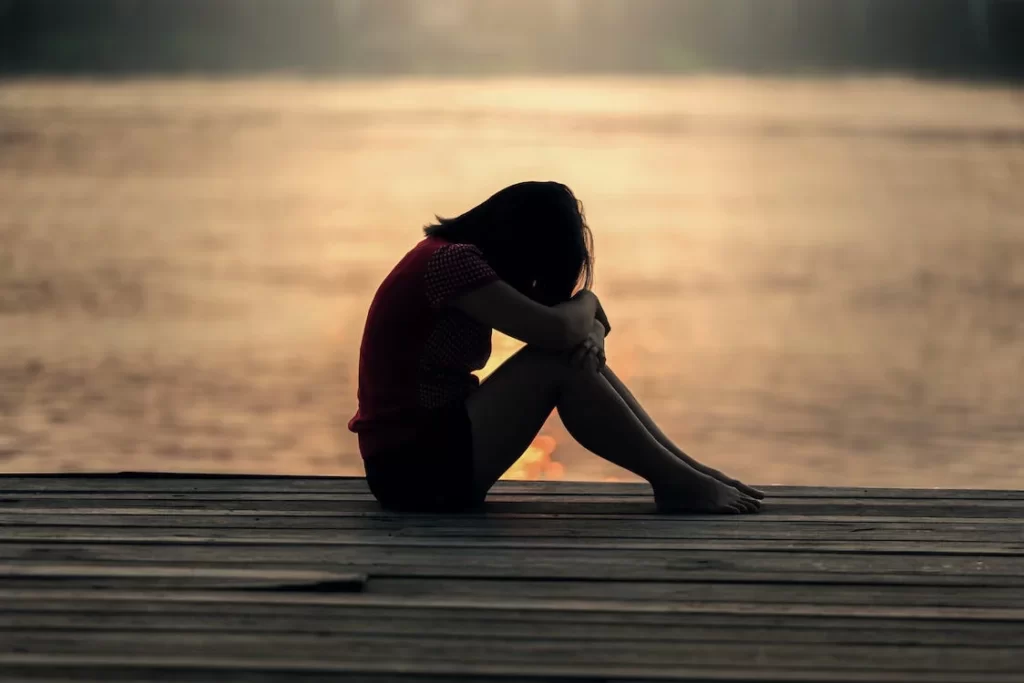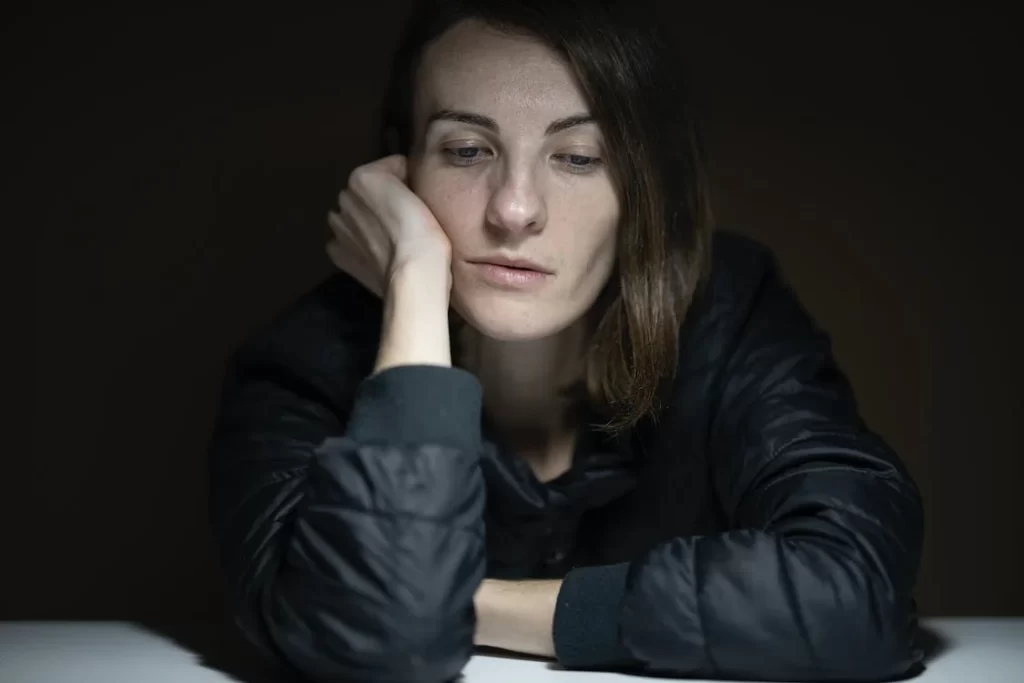Introduction
Depression is a common mental health problem that affects many people around the world. It can greatly affect how a person lives their daily life, their relationships, and how they feel overall. In this article, we will explore what depression is, its causes, symptoms, effects, and available treatments. We will also discuss coping strategies, lifestyle changes, and ways to support someone who is dealing with this.
What is considered major depression?
It is a mood disorder characterized by persistent feelings of sadness, loss of interest or pleasure, and a lack of motivation. It goes beyond normal feelings of sadness or temporary low moods. It can affect anyone regardless of age, gender, or background, and it can occur due to various factors such as genetics, brain chemistry, and life events.

Causes of Depression
It can have multiple causes, and it often results from a combination of factors. Some common causes include:
- Genetic Factors: Family history of depression or other mental health disorders can increase the risk of developing depression.
- Chemical Imbalance: Imbalances in certain neurotransmitters, such as serotonin and dopamine, can contribute to the development of this.
- Life Events: Things like bad experiences, losing someone important, problems in relationships, or money troubles can cause episodes of depression.
- Chronic Illness: People dealing with chronic illnesses, such as cancer, diabetes, or heart disease, are at a higher risk of developing depression.
- Substance Abuse: Drug or alcohol abuse can lead to depression or worsen existing depressive symptoms.
What are the 4 Major Types of Depression
It can manifest in various forms. Some common types of depression include:
Major Depressive Disorder (MDD)
MDD is characterized by persistent feelings of sadness, loss of interest, and a significant impact on daily functioning. Symptoms may last for weeks or months and can recur throughout a person’s life.
Persistent Depressive Disorder (PDD)
PDD, also known as dysthymia, involves chronic depression that lasts for at least two years. Symptoms may be less severe than in MDD but can still significantly affect a person’s quality of life.
Postpartum Depression
Postpartum depression affects new mothers and can develop shortly after childbirth. It is attributed to hormonal changes, sleep deprivation, and the emotional adjustment to motherhood.
Seasonal Affective Disorder (SAD)
SAD is a kind of depression that happens at certain times of the year, usually during winter when there is less sunlight.

What is a typical Symptom of Major Depression
It can manifest with a wide range of symptoms, which may vary in severity and duration. Some common symptoms include:
- Losing interest or enjoyment in things you used to like.
- Changes in eating habits and weight (either losing a lot of weight or gaining it).
- Changes in appetite and weight (either significant weight loss or gain).
- Sleep disturbances (insomnia or excessive sleep).
- Fatigue or lack of energy.
- Difficulty concentrating, making decisions, or remembering details.
- Restlessness or irritability.
- Physical symptoms such as headaches, stomachaches, or back pain.
- Thoughts of self-harm or suicide.
Effects of Depression
It can have a profound impact on various aspects of a person’s life, including:
- Emotional Well-being: People with this often feel very sad all the time, have trouble feeling emotions, and find it hard to enjoy things.
- Relationships: It can strain relationships with family, friends, and romantic partners due to changes in mood, lack of energy, and withdrawal from social activities.
- Work and Productivity: It can affect work performance, concentration, and motivation, leading to decreased productivity and potential job loss.
- Physical Health: It has been linked to increased risk for chronic conditions like heart disease, diabetes, and obesity. It can also make the immune system weaker, which means people are more likely to get sick.
- Suicidal Thoughts: In severe cases, It can make a person have thoughts of wanting to end their life.
Diagnosis and Treatment
Diagnosing with this involves a thorough evaluation by a healthcare professional, considering symptoms, medical history, and potential underlying causes. Treatment options may include:
- Psychotherapy: Talk therapy, such as cognitive-behavioral therapy (CBT), can help individuals identify negative thought patterns, develop coping strategies, and improve problem-solving skills.
- Medication: Antidepressant medications, such as selective serotonin reuptake inhibitors (SSRIs), may be prescribed to manage symptoms of depression. It is important to consult a psychiatrist for proper evaluation and medication management.
- Lifestyle Changes: Engaging in regular physical exercise, maintaining a healthy diet, getting enough sleep, and managing stress can support overall mental well-being.
- Support Groups: Joining support groups or seeking peer support can provide individuals with a sense of community and understanding.
- Alternative Therapies: Some individuals find relief through complementary approaches like meditation, yoga, acupuncture, or art therapy. These can be used in conjunction with traditional treatments.
Coping Strategies for Depression
In addition to professional treatment, there are several coping strategies that can help individuals manage their depression:
- Establish a Routine: Having a regular daily schedule can help you feel more stable and give you a sense of purpose.
- Set Realistic Goals: When you have tasks to do, break them into smaller, manageable parts, and celebrate each step you complete.
- Practice Self-Care: Engage in activities that bring joy and relaxation, such as hobbies, spending time in nature, or practicing mindfulness.
- Reach out for Support: Don’t hesitate to lean on friends, family, or mental health professionals for support and understanding.
- Avoid Isolation: Stay socially connected by maintaining relationships and participating in social activities, even if it feels challenging.
Lifestyle Changes for Managing Depression
Making certain lifestyle changes can significantly contribute to managing depression:
- Physical Exercise: Engaging in regular exercise releases endorphins, improves mood, and reduces symptoms of this.
- Healthy Diet: Eating a balanced diet rich in fruits, vegetables, whole grains, and lean proteins can support brain health and overall well-being.
- Adequate Sleep: Prioritize quality sleep by establishing a consistent sleep schedule, creating a calming bedtime routine, and ensuring a comfortable sleep environment.
- Stress Management: Explore stress-reduction techniques such as meditation, deep breathing exercises, or engaging in relaxing activities.
- Limit Alcohol and Drug Use: It’s important to avoid drinking too much alcohol or using illegal drugs because they can make depression worse.
Supporting Someone with Depression
If you have a loved one dealing with this, here are some ways to offer support:
- Listen and Validate: Be there to listen without judgment and validate their feelings and experiences.
- Educate Yourself: Learn about it to better understand what your loved one is going through and how you can support them.
- Encourage Professional Help: Suggest that they seek professional assistance and offer to accompany them to appointments if needed.
- Offer Practical Support: Help with daily tasks, such as grocery shopping or cooking, to alleviate some of the burdens.
- Be Patient: Understand that recovery takes time and be patient with their progress.
Conclusion
It is a complex mental health condition that can have a significant impact on individuals’ lives. It is crucial to seek help and support when experiencing symptoms of it or when supporting someone who is dealing with it. With the right diagnosis, treatment, ways to handle things, and support, you can manage depression and feel better overall.
FAQs
Q1: Can depression go away on its own? A1: In some cases, depressive symptoms may improve without treatment, but it is important to seek professional help for proper evaluation and support.
Q2: Is depression a sign of weakness? A2: No, it is not a sign of weakness. It is a medical condition that can impact anyone, regardless of their strength or character.
Q3: Can lifestyle changes alone treat depression? A3: Lifestyle changes, such as exercise and healthy eating, can complement professional treatment but may not be sufficient on their own for severe depression.
Q4: How long does depression treatment take? A4: The duration of treatment varies depending on the individual and the severity of it. It can range from a few months to several years.
Q5: Is it normal to have good days while experiencing depression? A5: Yes, it is normal to have fluctuations in mood while experiencing this. It is important to celebrate and cherish the good days while managing the challenging ones.
Also Read–https://healthshit.com/the-ultimate-guide-to-shower-gel-benefits-types/
Read–https://www.psychiatry.org/patients-families/depression/what-is-depression




